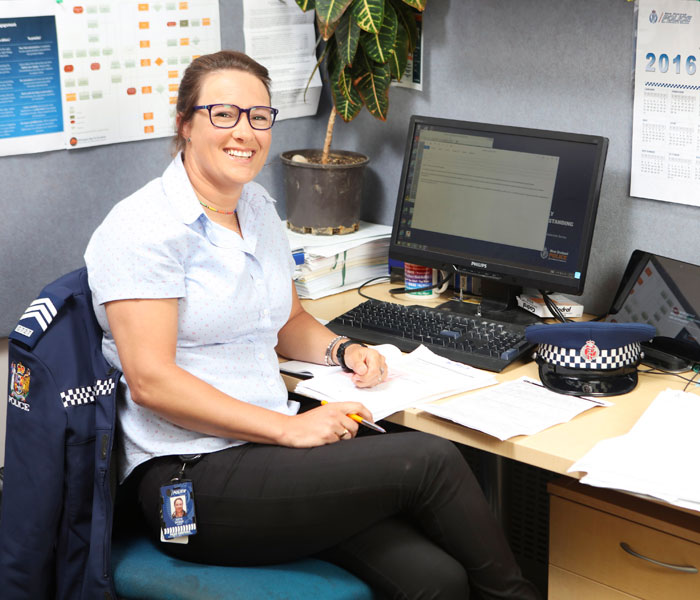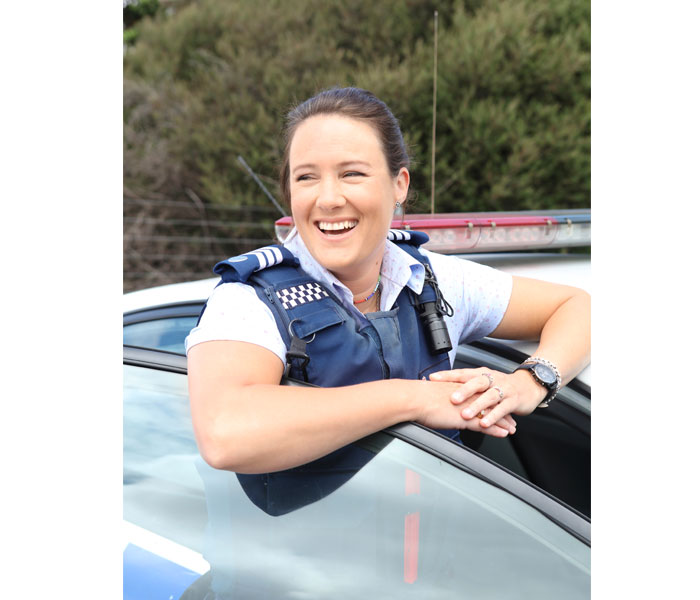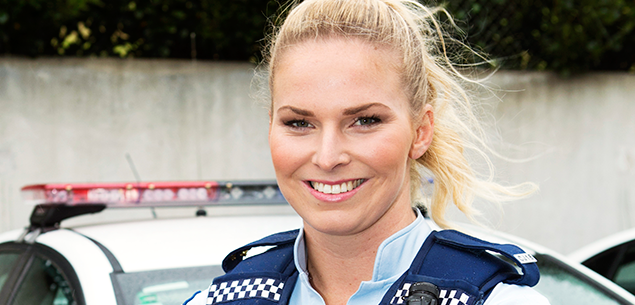Growing up, I always wanted to be a detective. It’s true! My brother and I used to run around the neighbourhood being spies. Well, just ratbags really. We went on what we called commando missions.
I was obsessed with the idea. I used to read detective books and ones about how to be a spy. Mum and Dad weren’t keen on me joining the police though – I was pretty little then. But now they don’t have a problem – it’s been about 20 years!
So I finished school, went to university and did a degree in maths and a year of work doing graphic art – I know, the complete opposite to what I do now. But I always wanted to join the police. So I went to police college and never looked back.
My first station was Otara in South Auckland and I’ve always been in the Counties Manukau District. I love working with Polynesian families and I adore their culture as well – they are very respectful of police.
I spent two and a half years as a frontline police officer, and then six months in intel, before I joined the Criminal Investigations Branch.

There’s no doubt that as a woman I’ve always been a minority in the police force, but I’ve also never been made to feel that way. I’ve always made the best of each situation I’ve been in and done the best I can. I’ve always been one of the boys.
I do think women tend to overprove themselves and don’t back themselves as much as they should. But being a woman in the police is no different from being a guy in the police, I think. We bring something different to victims in terms of being able to talk really well and we don’t have to scrap.
I have one daughter, Chloe, who is 15. I took two and a half years off to be with her at home, and then I went back to work. I was thrown into it and I loved it.
I was working on child abuse cases at the time. To be honest, the work was awesome and Chloe was always too young for the work to affect me as a mother as I didn’t deal with victims as young as her. However, my maternal nature did cause me distress when I went into child exploitation, which was a team I set up.

I’d have to go through thousands of images of objectionable material. It was dreadful. I did it for about two and a half years. Now I lead the Family Harm High and Complex Risk team. It does mean quite a bit of desk work but I try to clear that so I can get out of the office.
I deal with high risk situations. We work with the victims and put the support in place after the event has happened and find out what is going on. We make sure they’re safe and have a safety plan moving forward. We might even provide a go-bag so they can leave safely and quickly if they need to.
We also work with offenders to get to the bottom of why they’ve offended in the first place. In this country there is a lot of pressure on males to support their families, which causes a lot of stress.
The biggest problem in New Zealand is that you are often safer walking down the street than you are in your own home. Our family violence is horrific and that’s the issue we’re trying to remedy.
The cool thing about this field is that once you get into the police force there’s so many areas you can go within it to find your niche. You could do things such as specialist searches or hostage negotiations on the side of your main role.
It’s an absolute honour to be a police officer. You take on that mantle and have it with you for the rest of your life – it doesn’t matter if you’re at work or not.
When the cops arrive, you get the impression that the cavalry is here and everyone is relieved. The presence is sometimes enough for everyone to be able to relax. I know some families don’t particularly like us turning up, but I think when you turn up and you’re there to help people, it’s awesome.”
As told to Ciara Pratt


